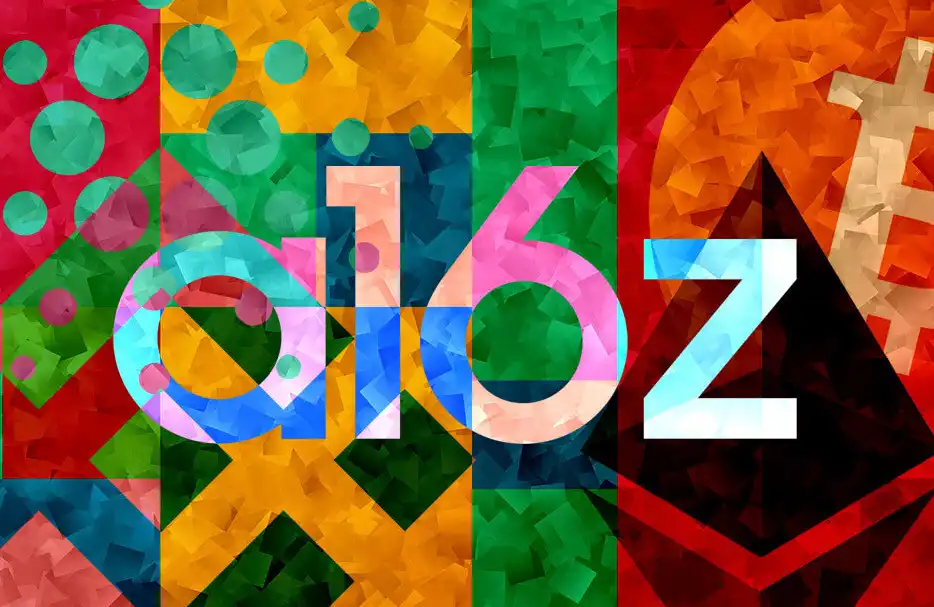a16z: How Can U.S. States Foster Responsible Crypto Innovation?
Original Article Title: State crypto policy playbook: 5 actions states can take to advance responsible crypto innovation
Original Article Authors: Aiden Slavin, a16z Crypto Policy Partner, Kevin McKinley, a16z Government Affairs Team Partner
Original Article Translation: Luffy, Foresight News
The pace of cryptocurrency legislation at the federal level in the United States has been swift. In just the past three months, President Trump signed the Genius Act into law, and the House of Representatives overwhelmingly passed the milestone Clarity Act with bipartisan support.
However, the federal government is not the only legislative body in the U.S. actively working to establish rules for the crypto industry. By 2024, 27 states and the District of Columbia had collectively passed 57 crypto-related bills.
While federal legislation has significantly reduced the need for states to build their own comprehensive crypto regulatory frameworks, states can still play a proactive role in advancing responsible crypto innovation.
The following will break down five targeted, proactive measures, all based on real-world examples, aimed at helping states protect citizen rights and support the development of local blockchain businesses.
1. Adopt DUNA
Unlike traditional enterprises, decentralized blockchain networks have no board of directors or CEO. Instead, they aim to decentralize governance through Decentralized Autonomous Organizations (DAOs), transferring governance to users and eliminating centralized control mechanisms.
Without DAOs, blockchain networks may be controlled by centralized forces, much like the current feudal fragmentation of the internet, dominated by a few giants like Meta, Google, Amazon, and others. These centralized, predatory enterprises are neither beneficial for users nor for innovation. If large tech companies end up controlling blockchain networks, the blockchain-based internet (Web3) could repeat the pitfalls of the current online space: surveillance, cybercrime, censorship, value extraction, and other issues would proliferate.
By empowering users with governance over blockchain networks, DAOs have the potential to realize the internet's original vision: open, decentralized, and user-controlled. However, today's DAOs face many challenges and even become targets of legal and regulatory actions. Just last year, a court ruled that any action taken within a DAO (including posting on public forums) could expose members to legal liability under general partnership law for the actions of other members. This not only poses a significant legal risk to DAO members but also fundamentally undermines the feasibility of the DAO as an organizational form. Additionally, DAOs also face some daily yet destructive obstacles, such as the inability to enter into contracts with third parties.
Fortunately, these issues already have solutions. In March 2024, Wyoming became the first state in the United States to enact the "Decentralized Autonomous Nonprofit Organization Act" (DUNA). This act allows blockchain networks to remain decentralized while complying with the law: it grants legal personhood to DAOs, allowing them to enter into contracts with third parties, participate in litigation, pay taxes, and provides core protections for DAO members against liability for the actions of others. In short, DUNA puts DAOs on equal legal footing with traditional corporate forms such as limited liability companies.
The influence of DUNA is expanding. Just last month, the Uniswap DAO passed a resolution with an overwhelming vote (52,968,177 votes in favor, 0 votes against) to adopt DUNA registered in Wyoming as the legal framework for the Uniswap governance protocol. This move allows Uniswap to maintain its decentralized governance structure while being able to engage service providers and meet regulatory requirements. Newly launched blockchain projects are also adopting this architecture.
The more widespread DUNA becomes, the more capable DAOs are of competing with enterprise-led centralized networks, thereby helping to build an open, user-controlled internet. Wyoming's pioneering DUNA legislation is built on years of practice, including the state's earlier adoption of the "Uniform Unincorporated Nonprofit Association Act" (UNA). States that have established functional UNA frameworks can unleash the potential of Web3 by adopting DUNA themselves. Through collective efforts, these states are poised to accelerate the flow of crypto businesses back to the United States and solidify the country's position as a global crypto hub.
II. Ensure Existing Laws Do Not Misclassify Tokens and Implement Improper Regulation
Tokens are records of data that include information such as quantity and permissions. The key difference between tokens and regular digital records is that tokens exist on a decentralized blockchain, and any modifications must adhere to pre-defined rules. These rules are enforced by autonomous, uncontrolled software, allowing tokens to endow holders with "executable digital property rights."
Although we categorize tokens into 7 major types, the applications of tokens are virtually endless. Moreover, contrary to the common misconception that "tokens are only used for trading as meme coins or Bitcoin-like assets," many common token types do not possess financial attributes. Take entertainment tokens, for example: as the name suggests, these tokens resemble traditional amusement park metal tokens and only provide utility within a specific system (such as a particular game), not for speculation or investment. Typical examples include "digital gold in virtual worlds" and "points in membership programs."
For instance, the Blackbird dining loyalty app issues points to customers and distributes revenue to restaurants, using its entertainment token FLY to facilitate interaction between restaurants and customers. Customers can use FLY to purchase cold brew coffee, earn loyalty rewards, thereby providing opportunities for local coffee shops, community pizzerias, and other small businesses to retain customers while rewarding consumers who support small businesses.
Similar to casino tokens, collectible tokens are also not considered financial instruments. These tokens are often referred to as Non-Fungible Tokens (NFTs), whose utility value lies in recording ownership of a specific item or right. A collectible token may represent a song, a concert ticket, or ownership of any unique item or privilege.
Clearly, restaurant points are not the same as a song and do not fall under traditional financial instruments such as company stocks or corporate bonds. Whether it's a casino token or a collectible token, they do not imply or promise any financial return. Furthermore, there are many other examples of non-speculative tokens, such as identity credentials, in-game assets, and more.
Therefore, for casino tokens, collectible tokens, and other non-speculative digital assets, the key is not to confuse them with financial instruments. Unfortunately, many states use the term commonly used for financial assets to refer to all tokens, leading individuals and businesses using non-financial attribute tokens to fall under regulatory rules intended for financial institutions.
Misclassifying tokens under the law (even worse, using a single definition to classify all tokens) will inevitably result in undue regulation of tokens, with potentially absurd consequences.
Imagine this: if a coffee shop owner needed to obtain a financial services license to offer a loyalty points program to customers; if a musician had to consult with local financial regulatory authorities to issue a token representing ownership of their new song. Such requirements would impose a heavy burden on small businesses, artists, and users, and are not essential for consumer protection. The flourishing of the crypto industry requires sound policies and regulations, but this demands rules that target actual risks rather than restraining the businesses and creators who are driving state economic growth and innovation.
The Illinois Digital Assets and Consumer Protection Act (DACPA) serves as a model state law for regulating tokens reasonably. In August 2025, Governor Pritzker signed the bill. DACPA recognizes that different tokens pose different risks and explicitly excludes businesses using casino tokens, collectible tokens, and other non-speculative tokens from financial regulation, as these tokens do not present the risks that financial regulatory systems are designed to address. Other states should follow Illinois's example to ensure laws appropriately classify and regulate tokens.
III. Establishing a Blockchain Task Force
The conflicting laws among states have resulted in a plethora of contradictory rules, benefiting large compliant enterprises while making it difficult for small tech companies to progress. Fortunately, federal legislation has largely eliminated the need for each state to individually construct a comprehensive crypto framework. However, as Justice Louis D. Brandeis aptly put it, for specific issues, states should still serve as policy innovation labs.
When considering "whether and how to conduct policy experiments," establishing a blockchain task force is a good first step. These task forces provide states with a valuable mechanism for public-private information sharing: their members include both government officials and industry professionals who can provide the governor and legislature with blockchain-related information, including technology use cases, benefits, risks, the impact of federal policies on the state's policy agenda, and how the state can align its policies with those of other states.
The California Blockchain Working Group is a model of a state-level cryptocurrency task force. In 2018, California passed the AB 2658 bill, requiring the Secretary of Government Operations to appoint a blockchain technology working group and chairperson responsible for assessing the use cases, challenges, opportunities, legal implications, etc., of blockchain.
Comprising 20 members from various fields, including technology, business, government, law, cybersecurity, among others, this working group two years later submitted a report to the state legislature containing policy recommendations and proposals on how to adjust current laws to accommodate the specific needs of blockchain.
Four, Public Sector Blockchain Use Case Pilots
States can also drive responsible crypto innovation and address real-world issues by testing blockchain applications in the public sector. These pilots serve a dual purpose: they help the public understand the broad applicability of blockchain technology while also showcasing the actual value of blockchain in improving government operational efficiency. The benefits of public sector blockchain projects go beyond a single pilot: state government agencies enhance their technical knowledge through experiential learning, which further guides state-level policy-making.
There are already several successful cases of public sector blockchain applications. The report from the California working group did not merely stay at the theoretical level; its research results have propelled various state-level pilots, such as the state's Department of Motor Vehicles using blockchain to digitize car ownership to reduce fraud and increase efficiency. Utah passed a bill requiring the state's Department of Technology Services to pilot blockchain-based public project credentials. Other application scenarios include providing blockchain-based mobile voting for overseas voters, publishing state government expenditure records on a public blockchain for increased transparency, and using verifiable health credentials to privately convey medical test results.
By piloting and promoting these applications, states can both gain a deeper understanding of blockchain use cases and bring tangible benefits to citizens in the form of optimized government services.
Five, Utilize Stablecoins and Build a State Issuance System Based on the GENIUS Act
Stablecoins have provided a reliable entry point for one billion people into the crypto space. Globally, stablecoins will enable faster, cheaper, and programmable payments.
States can also benefit from digital dollars. Stablecoins can optimize government procurement and disbursement processes, reduce costs, improve efficiency, and enhance auditability. As long as states adopt privacy-preserving solutions to ensure citizen data security, these projects will be a win-win for the government and residents.
In addition to leveraging stablecoins to optimize government projects, states can also, based on local needs, participate in building a stablecoin issuance system. While the GENIUS Act sets nationwide rules for payment-oriented stablecoin issuers, it also leaves room for state-level issuance licenses as long as the issuer's outstanding issuance is below $10 billion, and the state issuance system is broadly consistent with the federal framework.
The precise meaning of basic agreement is still to be determined. The GENIUS Act has received bipartisan support in both the Senate and the House, setting strict standards for stablecoin issuers, including asset backing, transparency requirements, and robust Anti-Money Laundering (AML) and Know Your Customer (KYC) compliance. The Act will take effect in January 2027, or 4 months after the issuance of final rules by the primary federal stablecoin regulatory agency (whichever is later). During this period, federal agencies will elaborate on the implementation details of the GENIUS Act, including what requirements state-level systems need to meet to reach or exceed federal standards. While the federal government advances the implementation of the GENIUS Act, states can start considering whether adjustments or advancements to local stablecoin legislation are needed.
The GENIUS Act explicitly states that if states wish to regulate stablecoin issuers, they must meet the requirements of the federal framework; however, the Act also allows local governments to participate in shaping the future form of the digital dollar through policy-making.
Stablecoins provide states with an opportunity to once again act as policy labs, allowing them to experiment with different stablecoin issuance systems based on local needs. States like California have enacted stablecoin-related legislation; Wyoming has even introduced its own stablecoin, the Borderless Stable Token.
Summary
With the implementation of federal crypto regulations, states may no longer need to independently build comprehensive crypto regulatory frameworks. However, states still play a crucial role; by adopting targeted and feasible measures, states can both promote responsible crypto innovation and ensure that citizens and local businesses share in the benefits of the future of the Internet.
Welcome to join the official BlockBeats community:
Telegram Subscription Group: https://t.me/theblockbeats
Telegram Discussion Group: https://t.me/BlockBeats_App
Official Twitter Account: https://twitter.com/BlockBeatsAsia











